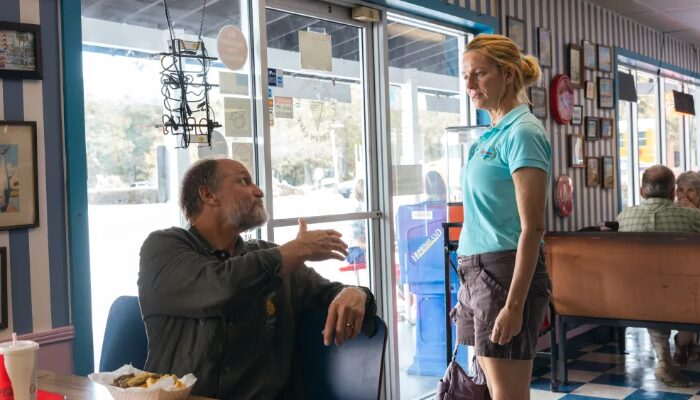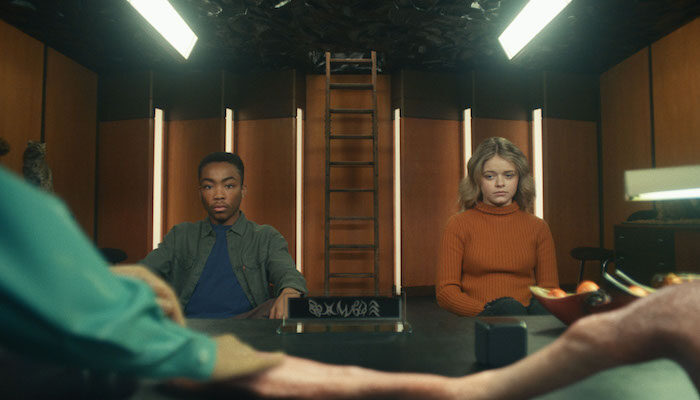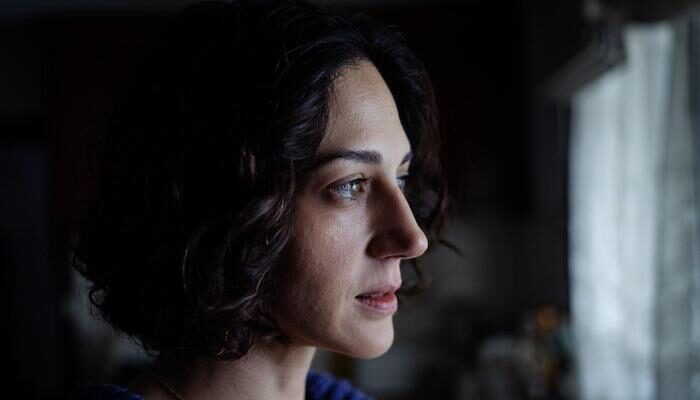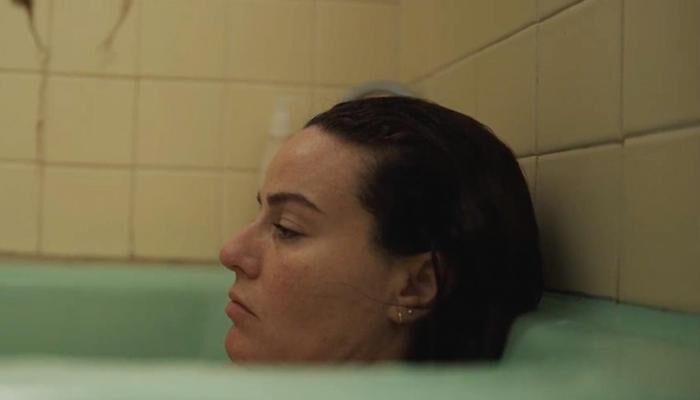Film Review: PASSAGES: A Fateful Foray into a Filmmaker’s Sexuality [Sundance 2023]
Passages Review
Passages (2023) Film Review from the 45th Annual Sundance Film Festival, a movie directed by Ira Sachs, starring Franz Rogowski, Ben Whishaw, Adèle Exarchopoulos, Theo Cholbi, Tony Daoud, Sarah Lisbonis, Anton Salachas, Thibaut Carterot, William Nadylam, Caroline Chaniolleau, and Olivier Rabourdin.
Ira Sachs’ Passages is a keen look into the discovery, exploration, and exploitation of an egocentric filmmaker’s foray into bisexuality.
German-born director Tomas (Rogowski) plunges into an affair with schoolteacher Agathe (Exarchopoulos) while completing his latest film in Paris. When Tomas’ confides this to his long-time partner Martin (Whishaw), it sounds almost like a confessional. Martin treats this event with stoic resignation, conveying the notion that the couple already treads choppy waters in their relationship.
The first scene gives us our initial glance into Tomas’ character as a fretful, demanding director. He quibbles over an actor’s entrance, walking down a flight of stairs. There is no denying his charisma, however. His broody intensity is part of his charm, and when he meets Agathe at the wrap party she falls, not all at once, into his arms, and later into his life, which he complicates further by impregnating his new friend.
By now it is all too clear just how deeply Tomas lives his life at the mercy of his passions. His impulses allow virtually no filters with respect to the impact of snap decisions he collects along the way. In a frantic effort to paint himself out of a corner, he fiercely canvasses support from both Martin and Agathe with shameless duplicity — argument, threats, tears — whatever works. And it does, to varying degrees, with one exception: consistently hot sex scenes show Tomas as skillful as Casanova.
Tomas’ schemes begin to unravel when he wins Martin’s loyalty with the promise of settling down into family life, using Agathe’s unborn child as leverage without her knowledge or consent. Martin ends his own getting-serious affair with author Clément (Nadylam). Meanwhile, brooking no challenges to his integrity, Tomas outright insults Agathe’s parents (Chaniolleau, Rabourdin) when they require reasonable assurances of his commitment to their daughter.
After Agathe decides against motherhood, she shocks Martin when, sitting face to face, she has no choice but to decline the baby’s gift he gently offers. It is then they both realize how badly they’d been cheated. It’s a good bet the audience has anticipated that Tomas has lost, irrevocably, on both fronts.
There is no question that Tomas is a cad, possibly even a sociopath. But it’s hard to separate this hard-wiring in the context of his creativity, in terms ends justifying means. It could be argued that Tomas had no choice but to follow his impulses in order to keep the fires of artistry burning; that others in his orbit are externalities, casualties in a war of devotion to his own savagely passionate nature. In this, Franz Rogowski shines very brightly indeed. We may despise Tomas but also recognize his special brand of conviction; his focus is to the point of tunnel vision.
Ben Whishaw, on the other hand, is all subtlety and quiet, self-contained fortitude. Martin provides us a sense of justice. When he hands Tomas his final walking papers, his declarations are beyond mere revenge, but cold, sharp, implacable, and very satisfying. Adèle Exarchopoulos’ Agathe offers a somewhat softer version of Tomas’ comeuppance. Her gentle but firm rebuff of his last ditch plea as a consort at his film debut in Venice carries the icy chill of contempt.
Ira Sachs (40 Shades of Blue) is well-known to Sundance and highly respected in the international film community. He scores again with Passages. His direction is brisk, which makes sense; judging from the length of Agathe’s pregnancy, the events in this film unfold over considerably less than three months. There is a fair amount of repartee interlaced in the lean dialog; the confrontations and arguments are quiet and right to the point. Sophie Reine’s editing is clean and concise with pacing at a nice clip.
Rating: 9/10
Leave your thoughts on this Passages review and the film below in the comments section. Readers seeking to support this type of content can visit our Patreon Page and become one of FilmBook’s patrons. Readers seeking more Sundance Film Festival news can visit our Sundance Film Festival Page, our Film Festival Page, and our Film Festival Facebook Page. Readers seeking more film reviews can visit our Movie Review Page, our Movie Review Twitter Page, and our Movie Review Facebook Page.
Want up-to-the-minute notifications? FilmBook staff members publish articles by Email, Feedly, Twitter, Facebook, Instagram, Tumblr, Pinterest, Reddit, Telegram, Mastodon, and Flipboard.
Related Articles
FilmBook's Newsletter
Subscribe to FilmBook’s Daily Newsletter for the latest news!













